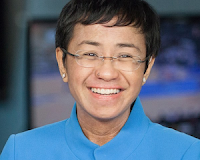Migrants in the Canary Islands

The radio programme " All Things Considered ", has recently reported about the African migrants that are temporarily being sheltered in hotels in the Canary Islands. Here you can find a link to the audio (3':42") and the transcript on NPR's webpage . And on this link, you can download a lesson plan which includes a listening comprehension exercise, the key and some questions for discussion which can be used as oral exam practice for a monologue or an interaction at C1 level. The vocabulary is not particularly difficult, some of the words you will come across are: pandemic, to halt [global travel], to host, a wave [of visitors], a surge, packed with [tourists], the occupancy, to be down to [COVID restrictions], to soak up [the sun], asylum seekers, [to play] draughts, apprehensive, to flee [conflict], risky, to starve, to scrape a living, the mainland, to bounce back.


